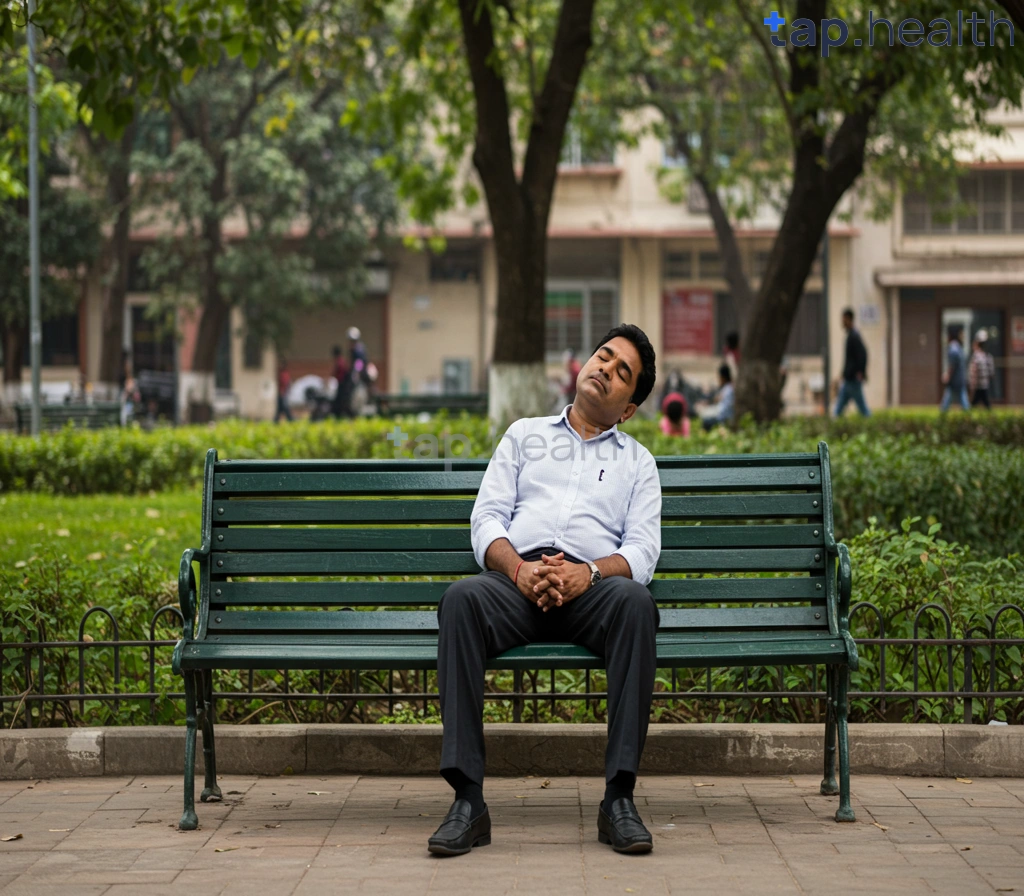Table of Contents
- Diabetes and Sleep: How Naps Impact Blood Sugar
- Blood Sugar Control: The Role of Sleep and Rest
- Improve Your Diabetes Management Through Better Sleep
- Is Napping Beneficial for Blood Sugar Regulation?
- Diabetes & Sleep Hygiene: A Guide to Better Blood Glucose
- Frequently Asked Questions
- References
Ever noticed how a good night’s sleep can affect your energy levels, and perhaps, even your blood sugar? Managing diabetes often feels like a constant balancing act, and sleep plays a surprisingly crucial role. This blog post dives into the complex relationship between Diabetes & Sleep: The Importance of Napping and Blood Sugar, exploring how napping – yes, even napping – can impact your blood glucose control. We’ll uncover some surprising insights and practical tips to help you better manage your diabetes through improved sleep habits. Let’s get started!
Diabetes and Sleep: How Naps Impact Blood Sugar
Diabetes significantly impacts sleep quality, increasing the risk of sleep disorders like sleep apnea by a staggering 70%, as research indicates. This bidirectional relationship means poor sleep can worsen blood sugar control, and uncontrolled blood sugar can disrupt sleep further. In hot and humid climates prevalent across many Indian and tropical countries, these issues can be exacerbated by discomfort and dehydration, leading to restless nights and impacting daytime blood sugar levels.
The Impact of Naps on Blood Sugar
For people with diabetes, strategically planned naps can offer some benefits. A short, 20-30 minute nap can help improve alertness and reduce daytime fatigue, potentially improving adherence to medication schedules and blood sugar monitoring. However, longer naps can disrupt nighttime sleep and lead to higher morning blood sugar levels. The key is moderation and timing. Avoid napping too late in the afternoon, as this can interfere with your nighttime sleep cycle.
Managing Blood Sugar in Hot Climates
In regions like India, where temperatures frequently soar, managing diabetes becomes even more critical. Dehydration can significantly impact blood sugar levels, so staying well-hydrated is essential. Consider incorporating cooling measures like a cool shower before bed or using a cooling mat to improve sleep quality. Remember to consult your doctor about appropriate strategies for managing your diabetes in your specific climate.
Practical Tips for Better Sleep and Blood Sugar Control
* Maintain a regular sleep schedule: Go to bed and wake up at the same time each day, even on weekends.
* Create a relaxing bedtime routine: Avoid screens before bed and try relaxation techniques like meditation or deep breathing.
* Monitor your blood sugar levels regularly: This will help you identify patterns and adjust your treatment plan accordingly.
Ultimately, understanding the relationship between sleep, blood sugar, and the impact of the climate is crucial for effective diabetes management. Speak to your doctor or a certified diabetes educator to develop a personalized plan that suits your needs and lifestyle in the Indian and tropical climate. For more information on the connection between diabetes and sleep disorders, you might find The Connection Between Diabetes and Sleep Apnea helpful. Also, if you’re wondering about the link between diabetes and daytime sleepiness, check out Does Sugar Diabetes Make You Sleepy? – Tap Health.
Blood Sugar Control: The Role of Sleep and Rest
Maintaining healthy blood sugar levels is crucial for managing diabetes, especially in hot and humid climates prevalent across India and tropical countries. Insufficient sleep significantly impacts blood glucose regulation, leading to increased risk of complications. Studies show that consistent lack of sleep can elevate insulin resistance, making it harder for your body to process sugars effectively. This can result in higher pre-meal blood sugar levels, ideally remaining between 80–130 mg/dL, and post-meal levels exceeding the recommended less than 180 mg/dL. Understanding Blood Sugar Levels is the first step to effective management.
The Impact of Heat and Humidity
The intense heat and humidity characteristic of many Indian and tropical regions can further exacerbate the challenges of diabetes management. Dehydration, common in such climates, can affect blood sugar levels. Moreover, the increased physical exertion required to navigate daily life in these conditions can deplete energy stores, potentially leading to erratic blood sugar fluctuations. Adequate rest and strategic napping can help mitigate these effects.
Napping and Blood Sugar Management
Short, strategic naps can offer a significant advantage in managing blood sugar levels. A 20-30 minute power nap can help restore energy levels, improve insulin sensitivity, and reduce stress—all factors that contribute to better blood sugar control. However, longer naps can disrupt nighttime sleep, negatively impacting overall blood sugar regulation. Therefore, finding the right balance is essential. For more on the importance of sleep, read about The Importance of Quality Sleep in Managing Diabetes.
Practical Tips for Better Sleep and Blood Sugar Control
Prioritize consistent sleep schedules, create a relaxing bedtime routine, and ensure your sleeping environment is cool and comfortable. Consider incorporating short naps into your daily routine, particularly during the hottest parts of the day, but avoid lengthy afternoon naps. Staying hydrated is crucial in tropical climates; drink plenty of water throughout the day. Regular consultation with your doctor or a certified diabetes educator is vital for personalized guidance and effective diabetes management. Remember, prioritizing sleep and managing blood sugar are critical steps towards a healthier life.
Improve Your Diabetes Management Through Better Sleep
Understanding the Diabetes-Sleep Connection in Tropical Climates
Sleep and diabetes are intricately linked, especially in hot and humid climates prevalent across many Indian and tropical countries. A significant portion of the global diabetes population, 61% of whom are aged between 20-64 years and 39% aged 65+, according to the IDF Diabetes Atlas, experience disrupted sleep. This can negatively impact blood sugar control. High temperatures and humidity can further exacerbate sleep disturbances, leading to increased insulin resistance and potentially higher blood glucose levels.
The Role of Napping and Blood Sugar Control
Short, strategic naps can be beneficial for managing blood sugar. However, it’s crucial to understand that long naps can disrupt nighttime sleep, counteracting any potential benefits. For individuals with diabetes, particularly in warmer climates, a short power nap (20-30 minutes) during the cooler part of the day might improve alertness and help manage blood sugar fluctuations, especially after meals. This is especially important for those with type 2 diabetes, where maintaining consistent blood glucose is paramount.
Practical Tips for Better Sleep and Diabetes Management
* **Prioritize a cool sleep environment:** Utilize fans, air conditioning, or cooling sheets to combat the effects of heat and humidity.
* **Establish a consistent sleep schedule:** Regular sleep patterns can help regulate your body’s natural rhythms, improving insulin sensitivity.
* **Create a relaxing bedtime routine:** Avoid screens before bed and practice relaxation techniques like meditation or deep breathing.
* **Consult your doctor:** Discuss the role of napping in your specific diabetes management plan.
Taking Control of Your Health
Managing diabetes effectively requires a holistic approach. By prioritizing sleep, particularly in the context of the challenges presented by tropical climates, you can significantly improve your blood sugar control and overall well-being. For more comprehensive strategies, check out our guide on 10 Proven Tips for Effective Diabetes Management. Remember, managing stress is also crucial; learn more about Effective Stress Management Tips for Better Diabetes Control. Speak to your doctor or a diabetes specialist today to create a personalized plan that addresses your individual needs and the environmental conditions you face.
Is Napping Beneficial for Blood Sugar Regulation?
Managing blood sugar levels is crucial for individuals with diabetes, especially in hot and humid climates prevalent in many Indian and tropical countries. Maintaining blood pressure within the recommended range, generally below 140/90 mmHg or even lower at 130/80 mmHg as per some guidelines, is also vital. But how does napping fit into this picture?
The Link Between Sleep and Blood Sugar
Studies suggest that insufficient sleep can negatively impact blood sugar control. Lack of sleep increases stress hormones like cortisol, which can lead to insulin resistance and higher blood glucose levels. For individuals with diabetes in tropical regions, where heat and humidity can already disrupt sleep, this becomes even more critical. A short, well-timed nap might offer a beneficial countermeasure.
Napping Strategically for Better Blood Sugar
While a long nap might disrupt nighttime sleep and worsen blood sugar control, a 20-30 minute power nap can potentially improve alertness and reduce stress. This, in turn, may indirectly contribute to better blood sugar management. However, it’s crucial to avoid napping too close to mealtimes as this could lead to unpredictable blood glucose spikes. Individuals should consult their doctor or a certified diabetes educator to determine if and when napping is appropriate for their personal situation. For more immediate strategies to reduce blood sugar, check out 10 Tips for Immediate Blood Sugar Reduction – Tap Health.
Practical Tips for Diabetics in Tropical Climates
Considering the heat and humidity, prioritize sleep hygiene. Ensure a cool and comfortable sleep environment, stay hydrated, and maintain a consistent sleep schedule. A short afternoon nap, if timed correctly and appropriate for your individual needs, might be a helpful addition to your diabetes management plan. Remember to always discuss any changes to your lifestyle, including napping, with your healthcare provider. They can provide personalized advice based on your specific health condition and climate-related factors. Understanding the importance of monitoring your blood sugar after meals is also key; learn more by reading Why is monitoring postprandial blood sugar important? – Tap Health.
Diabetes & Sleep Hygiene: A Guide to Better Blood Glucose
Managing diabetes isn’t only about diet and exercise — sleep plays a vital role in maintaining healthy blood glucose levels. Poor-quality sleep or insufficient rest can significantly disrupt your body’s ability to regulate sugar, increasing the risk of diabetic complications. In India and other tropical countries, where heat and humidity can already make restful sleep a challenge, this becomes even more critical.
Studies have shown a strong link between sleep deprivation and elevated blood sugar levels, revealing how deeply rest affects metabolism. Add the emotional stress of managing diabetes, and it’s easy to fall into a cycle of poor sleep and worsening blood sugar control.
🧠 Understanding the Connection: Sleep and Blood Sugar
Sleep and glucose regulation are closely intertwined. When you don’t get enough sleep, your body’s hormonal balance is disrupted, especially hormones like insulin, cortisol, and ghrelin.
-
Insulin sensitivity drops, making it harder for your cells to absorb glucose.
-
Cortisol levels rise, which can lead to higher fasting blood sugar.
-
Appetite hormones fluctuate, causing increased hunger and cravings for sugary or high-carb foods.
In tropical climates, nighttime heat and humidity can make it even harder to sleep well, causing dehydration and restlessness — both of which can worsen blood glucose control.
That’s why improving sleep hygiene is more than a comfort measure; it’s a core part of diabetes management.
🌙 Improving Sleep for Better Blood Glucose Control
A few intentional changes can transform your sleep quality — and your blood sugar stability.
1. Keep a Consistent Sleep Schedule
-
Go to bed and wake up at the same time every day, even on weekends.
-
This helps regulate your body’s internal clock and supports hormonal balance.
2. Create a Relaxing Bedtime Routine
-
Wind down with light stretching, reading, or meditation.
-
Avoid screens, heavy meals, and caffeine at least 2–3 hours before bed.
3. Optimize Your Sleep Environment
-
In hot climates, use fans, air conditioning, or cooling sheets to stay comfortable.
-
Keep your room dark, quiet, and clutter-free to promote deeper sleep.
4. Manage Stress Proactively
-
Practice yoga, deep breathing, or mindfulness to calm your mind before bedtime.
-
Lower stress levels directly improve both sleep quality and blood sugar stability.
Even small improvements in sleep can have a measurable impact on your overall diabetes control. Remember, people with diabetes who smoke face twice the risk of cardiovascular complications, underscoring the importance of healthy lifestyle habits — including proper sleep.
🌿 Taking Action: Prioritize Your Sleep
In India and tropical climates, the combination of high temperatures, stress, and irregular routines can easily interfere with quality sleep — but the consequences go beyond tiredness. Prioritizing sleep hygiene is essential for protecting your long-term health and keeping your blood glucose levels in check.
Make rest a non-negotiable part of your diabetes care plan. Talk to your doctor or a certified diabetes educator about strategies that fit your schedule, environment, and lifestyle.
A good night’s sleep isn’t a luxury — it’s a powerful tool for better blood sugar control, improved mood, and overall well-being.
Frequently Asked Questions on Diabetes & Sleep
Q1. How does sleep affect my diabetes management?
Poor sleep quality can worsen blood sugar control, and poorly controlled blood sugar can, in turn, disrupt sleep. This is especially true in hot, humid climates.
Q2. Can napping help manage my diabetes?
Short naps (20-30 minutes) may improve alertness and medication adherence. However, longer naps can disrupt nighttime sleep and negatively impact morning blood sugar levels.
Q3. What are some tips for improving my sleep quality and managing my diabetes?
Maintain a consistent sleep schedule, create a relaxing bedtime routine, monitor your blood sugar regularly, and stay well-hydrated. Consulting a doctor or diabetes educator for personalized advice is also crucial.
Q4. How does the climate affect diabetes management and sleep?
Hot and humid climates, common in many tropical regions, can exacerbate the challenges of managing diabetes by increasing discomfort and dehydration, which further impact sleep quality and blood sugar control.
Q5. What should I do if I’m struggling to manage both my diabetes and sleep?
It’s essential to consult with your doctor or a certified diabetes educator. They can provide personalized strategies to help you improve your sleep quality and better manage your diabetes, particularly considering the impact of climate.
References
- A Practical Guide to Integrated Type 2 Diabetes Care: https://www.hse.ie/eng/services/list/2/primarycare/east-coast-diabetes-service/management-of-type-2-diabetes/diabetes-and-pregnancy/icgp-guide-to-integrated-type-2.pdf
- Children with Diabetes : A resourse guide for families and school. : https://www.health.ny.gov/publications/0944.pdf



